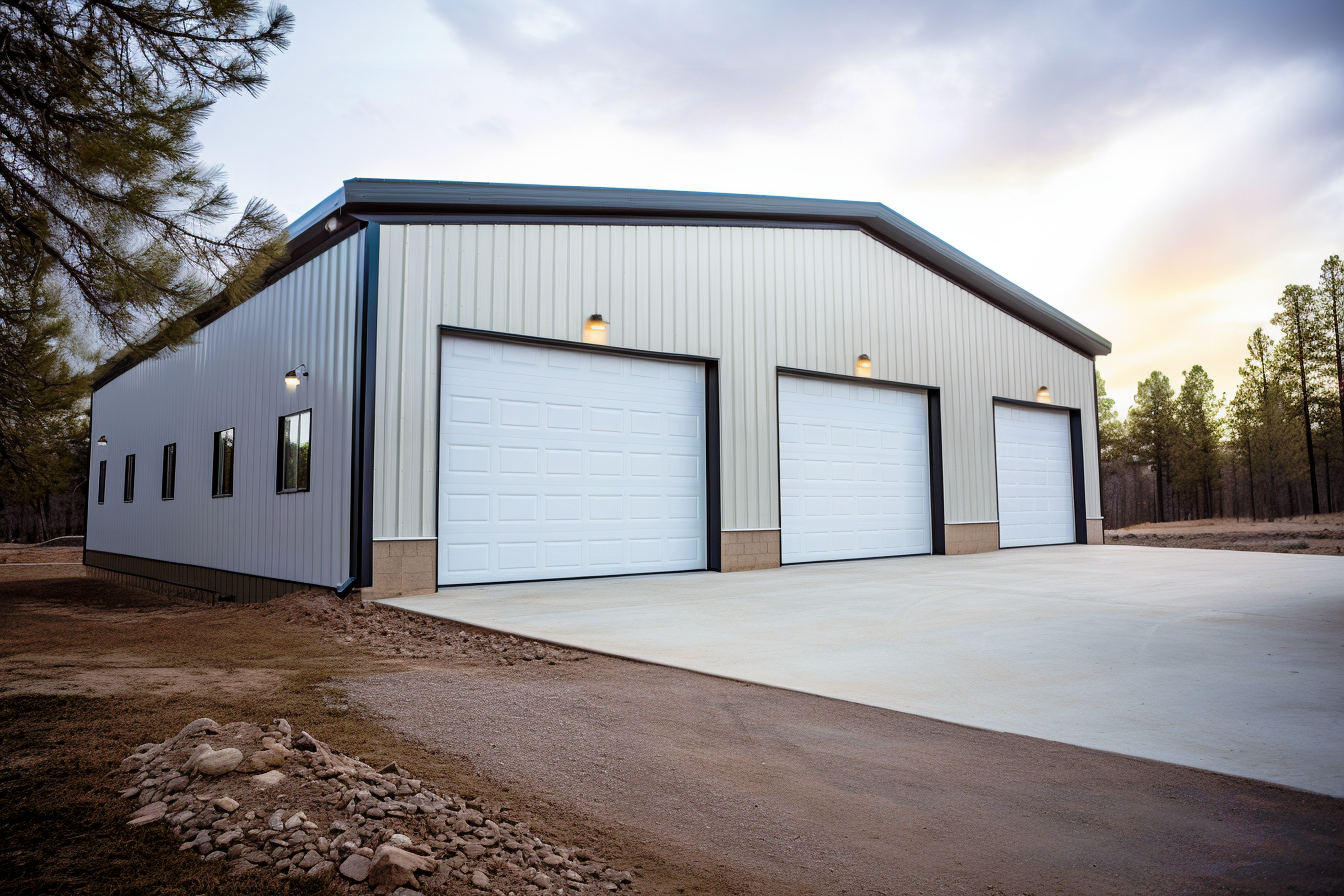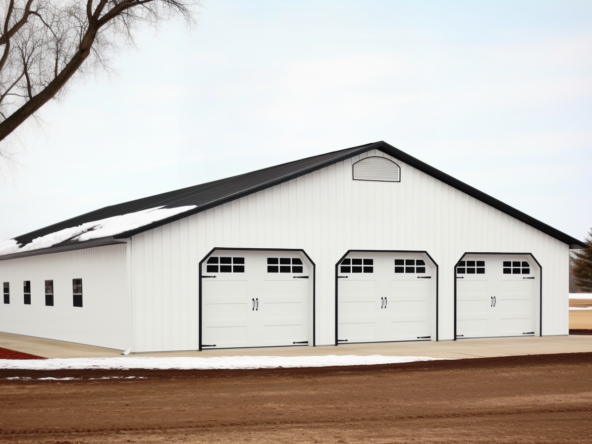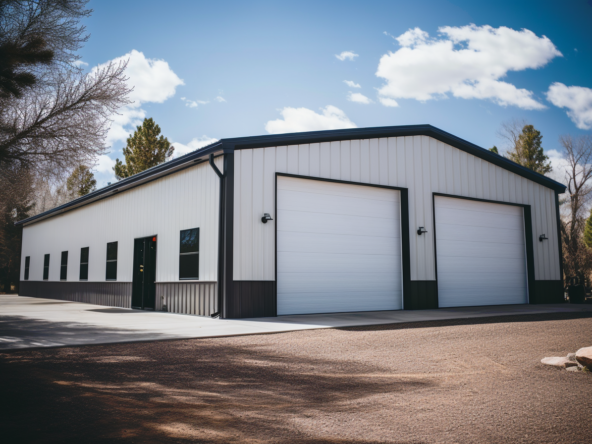Steel Garage Slab Foundation Essentials
While expedited steel garage construction utilizes simplified foundations versus demanding basements, engineered concrete slab specs still require understanding to support durable structures long term. From ideal thickness and site prep to recommended rebar and anchor integration, properly planned groundworks prevent undermining robust framing investments literally from the ground up.

Slab Sizing Standards
Light commercial steel garages classify around Occupancy Rating B, dictating minimum 4 inch slab thickness in most regions. This withstands moderate equipment and shelving loads well when using 3,000 PSI concrete mixes. Heavier vehicles or inventory warrants thicker 6 inch slabs, especially where freeze/thaw dynamics appear. Actual geotechnical surveys better guide total depth, grid and drainage needs. Generally size between 5-7 inch depths.
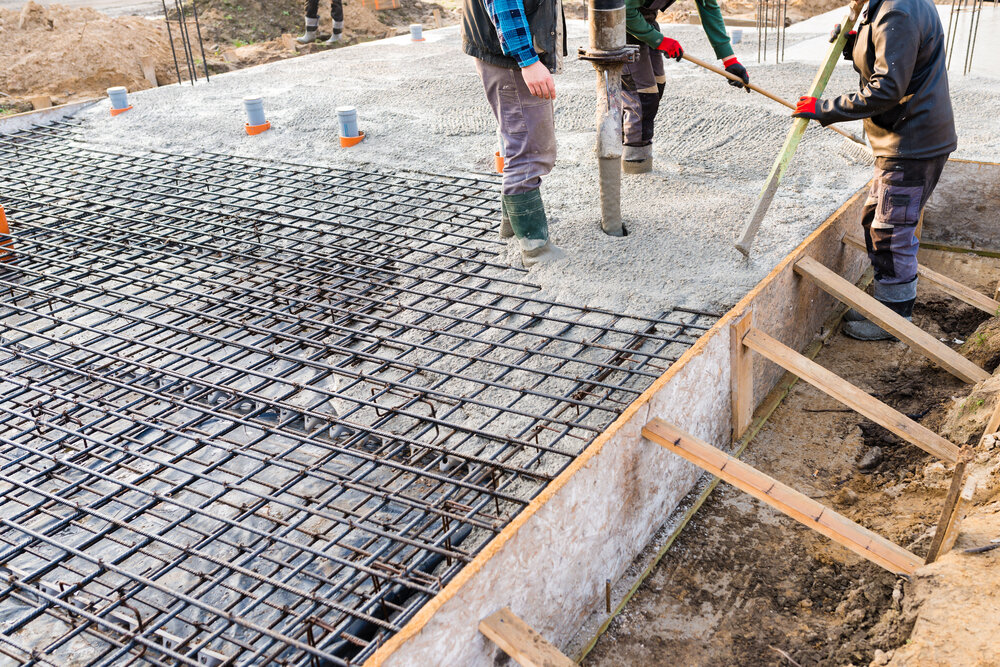
Site Grading and Rebar
Appropriate substrate preparation proves critical before pouring. Excavate topsoil then build 4-6 inches of compressed gravel base topped with sand layer smoothing irregularities for professional trowel finishing later. Grade surfaces 1/4 inch per lateral foot for rain runoff. Overlap rebar grid sections to tie foundation together then anchor vertical rebar posts protruding up serving as tie-down points securing framing columns and shear wall segments.

Estimated Costs
Average basic 24’x24’ steel garage slabs run $6-$8 per sq ft installed prevailing currently in 2023 dollars. This equates roughly $4,000 using the midpoint $7 rate. If financing concrete work separately later, batch plant minimums apply driving per foot prices higher along with remodeling nuisance costs. Minor grading/fill extras may add $500-$1,500 for irregular sites.
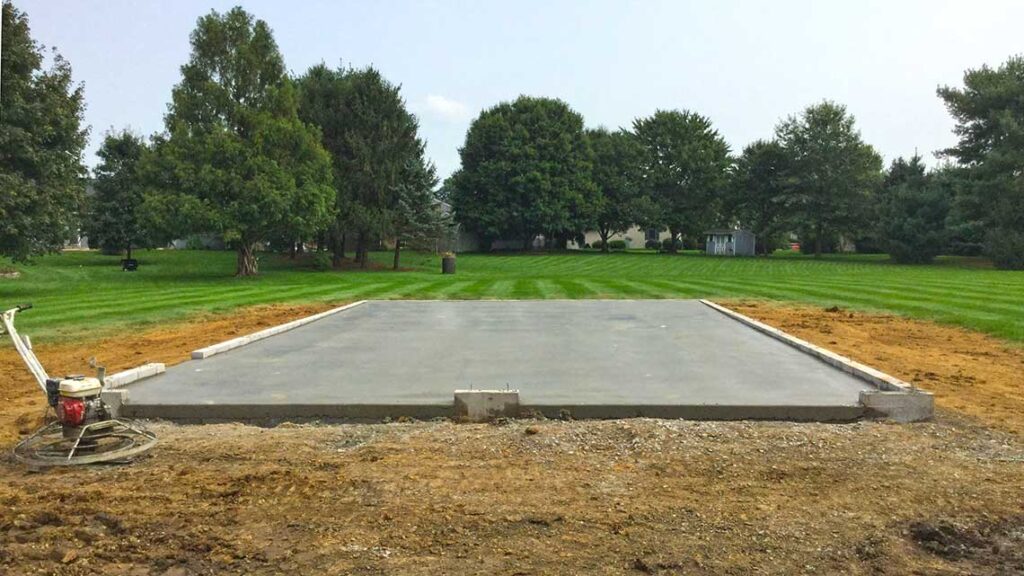
In summary, proper steel garage slab planning must ensure suitable moisture protection layers beneath, robust rebar integration within, and adequate slope drainage outward from foundations. Though upfront prices seem steep, quality slabs reinforce structures safely for decades protecting invaluable vehicle, equipment, and inventory investments making garages essential.

